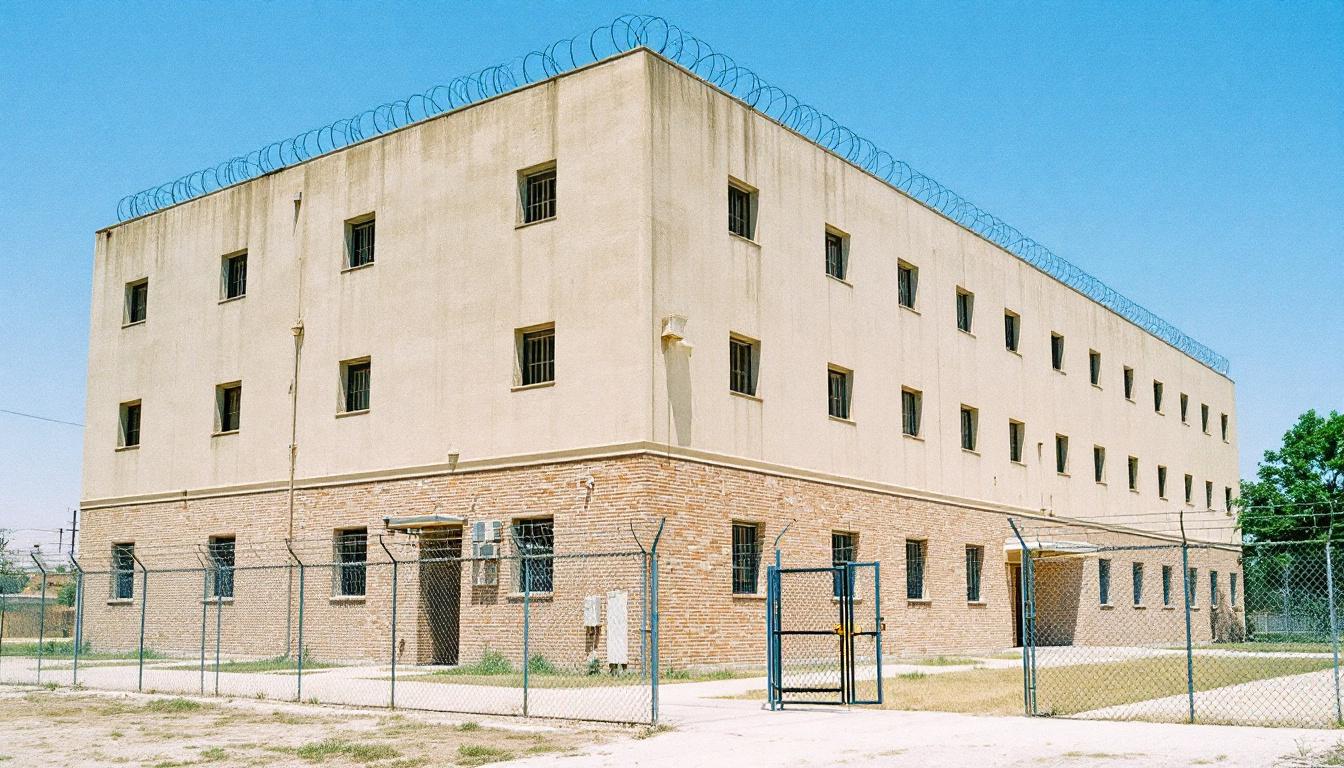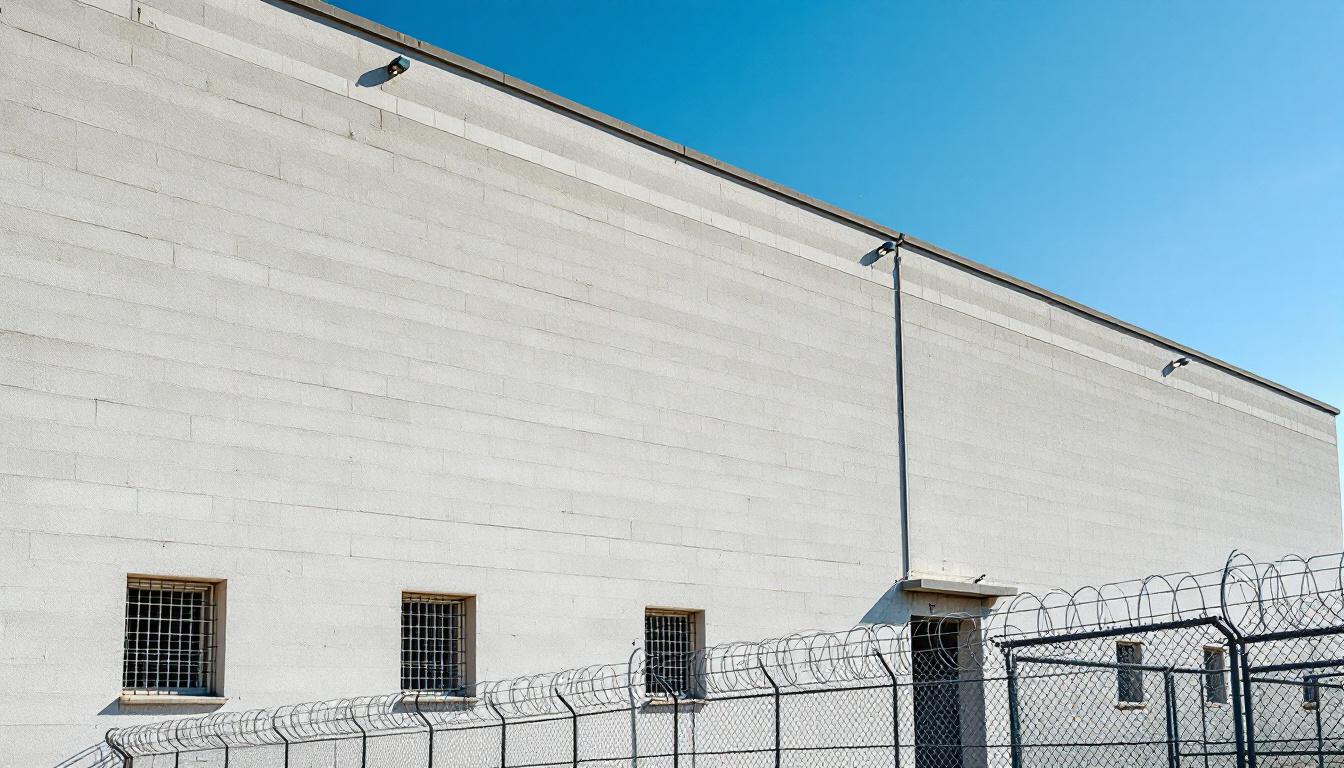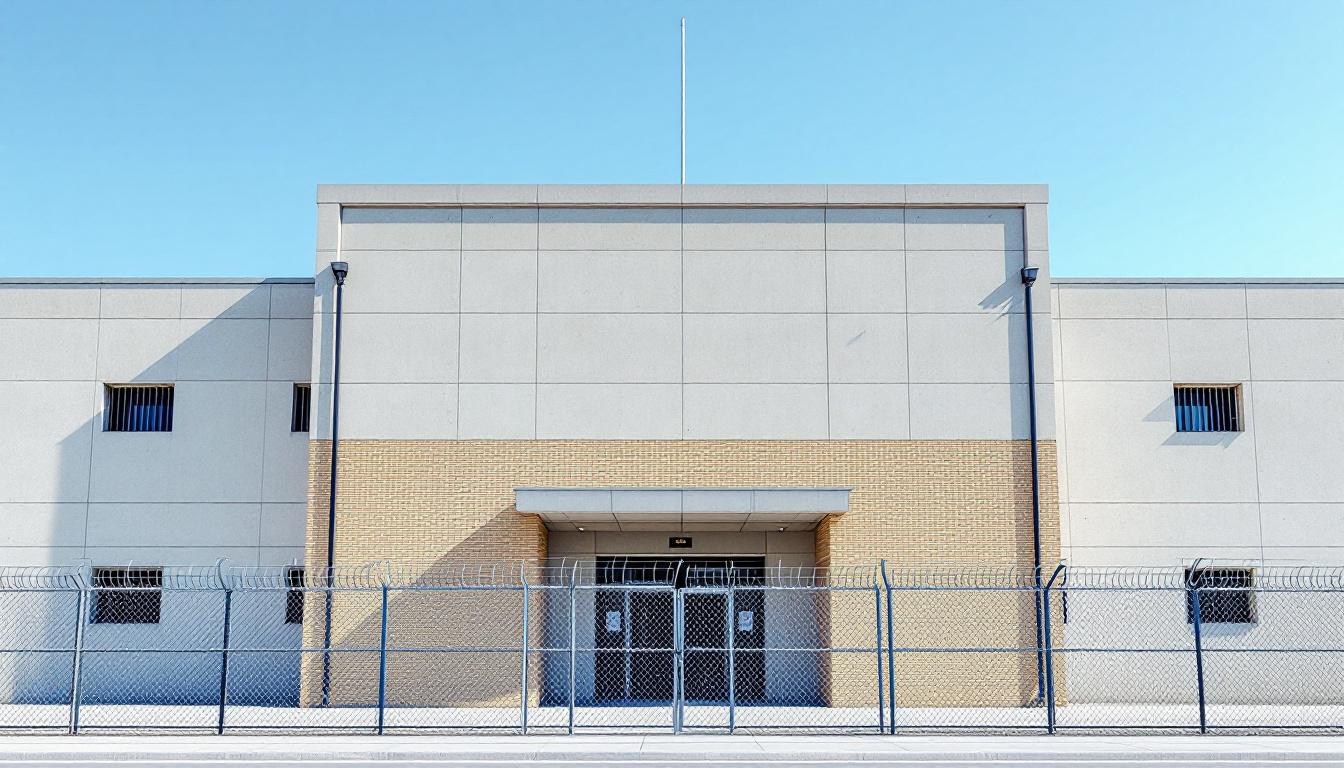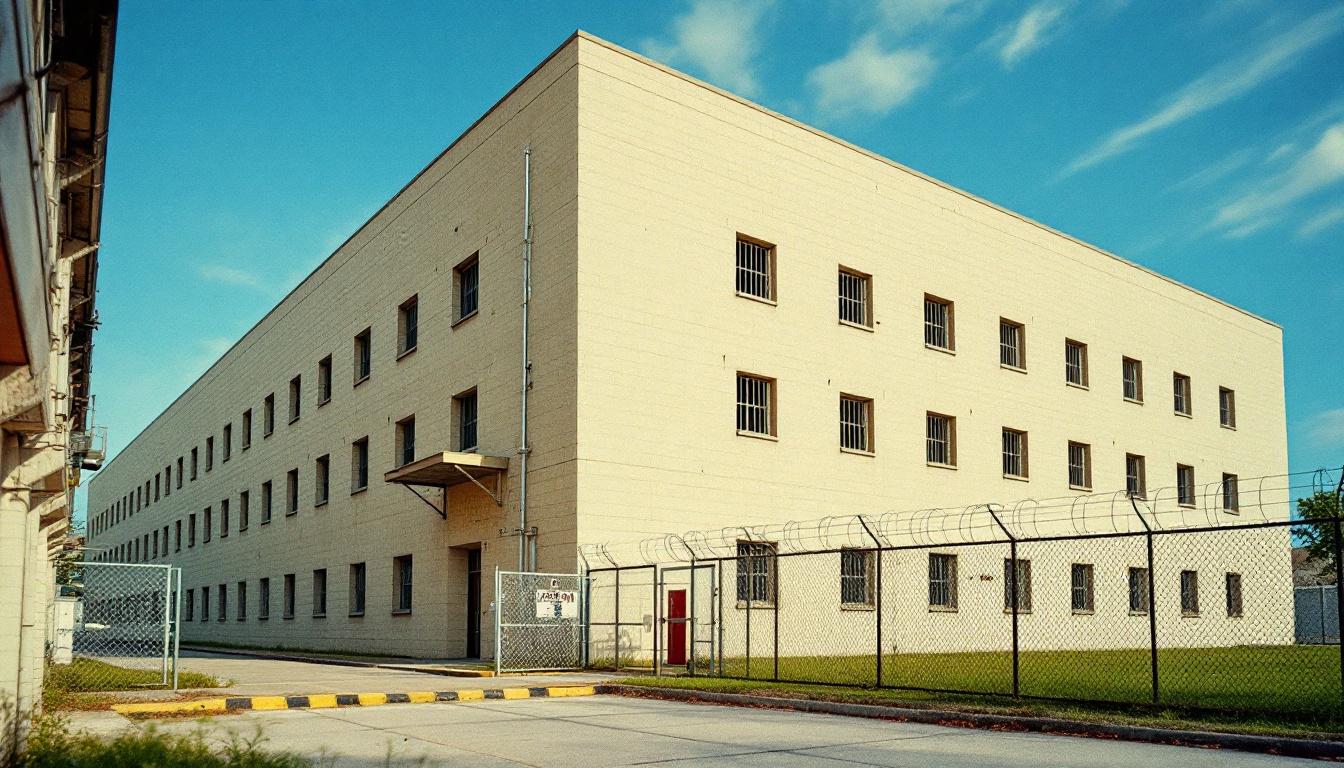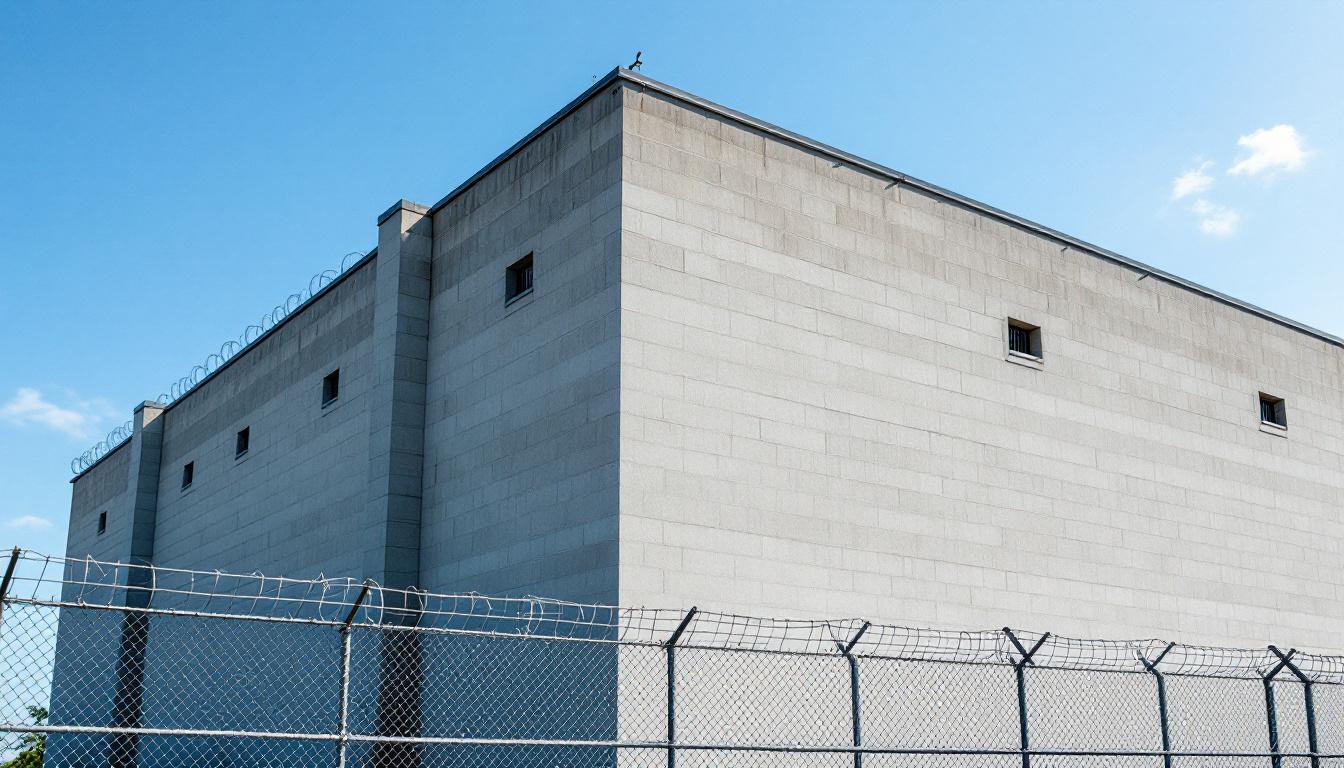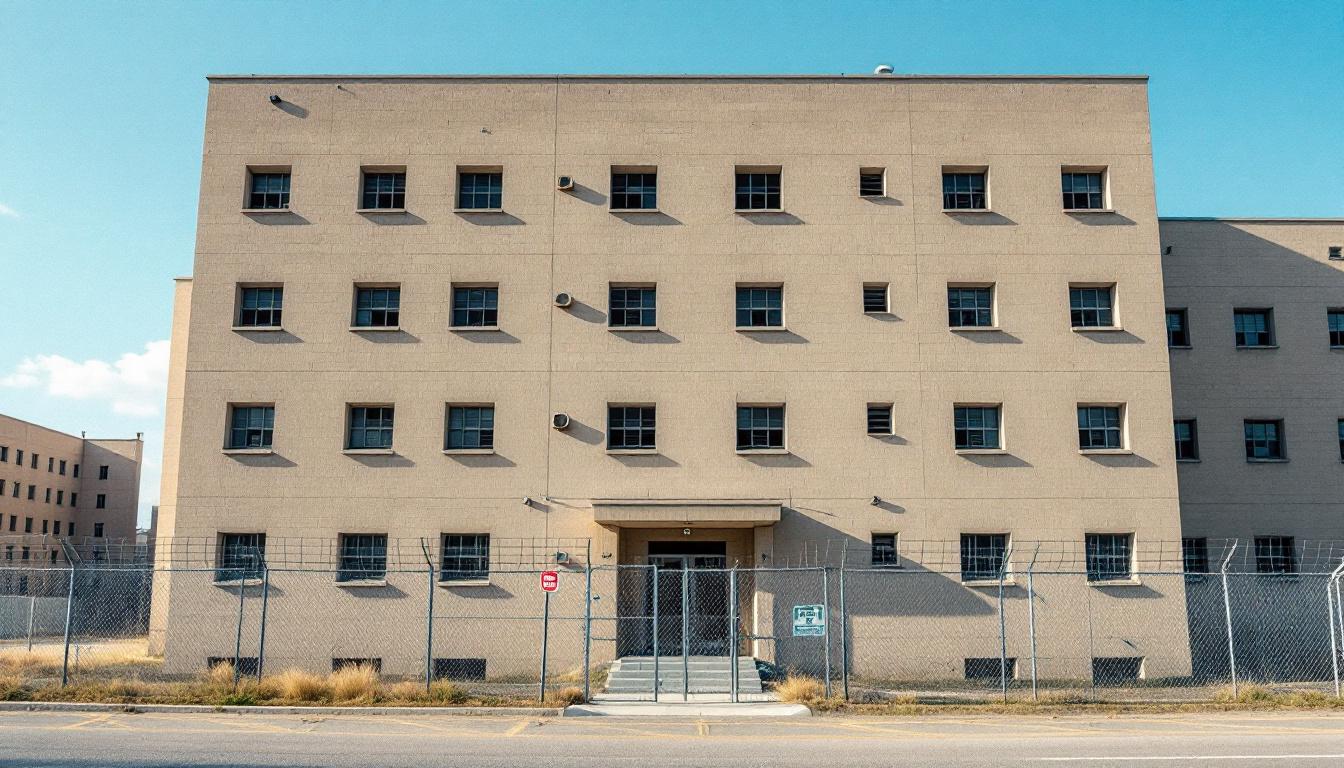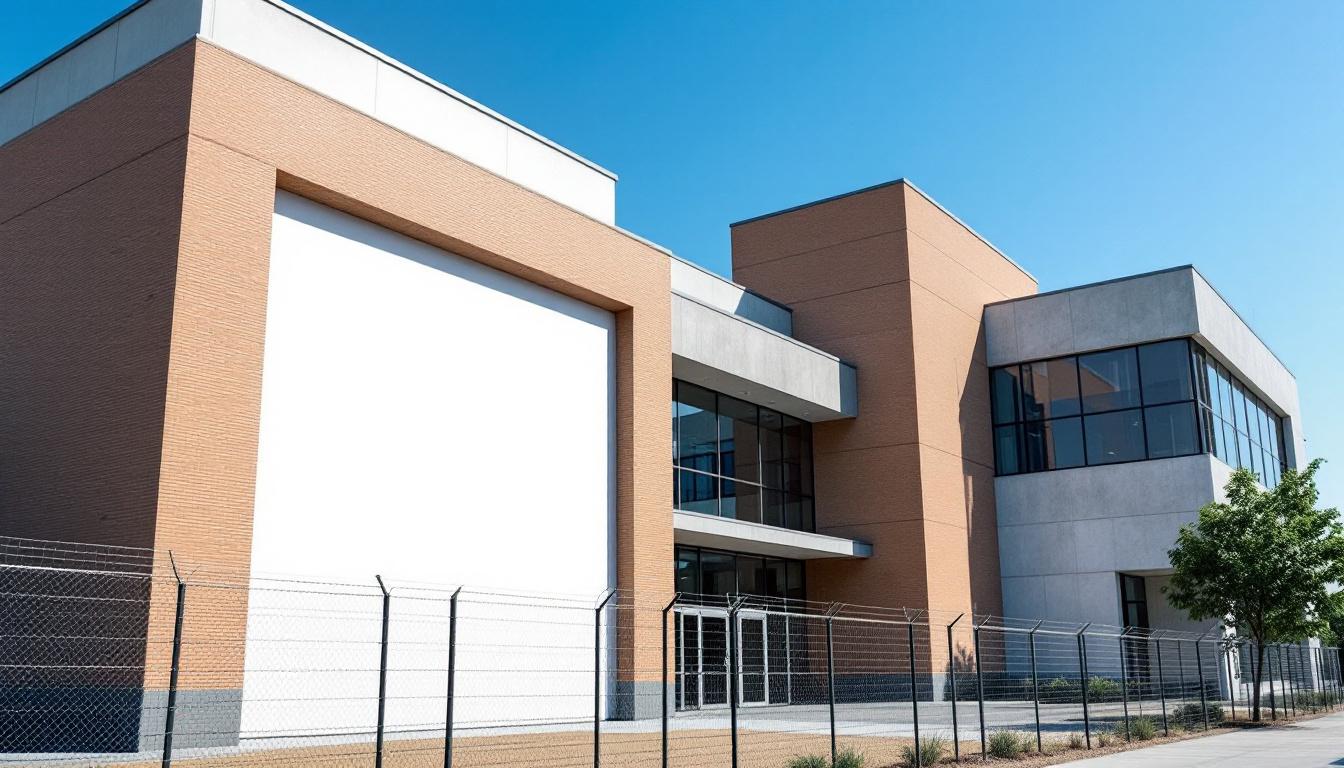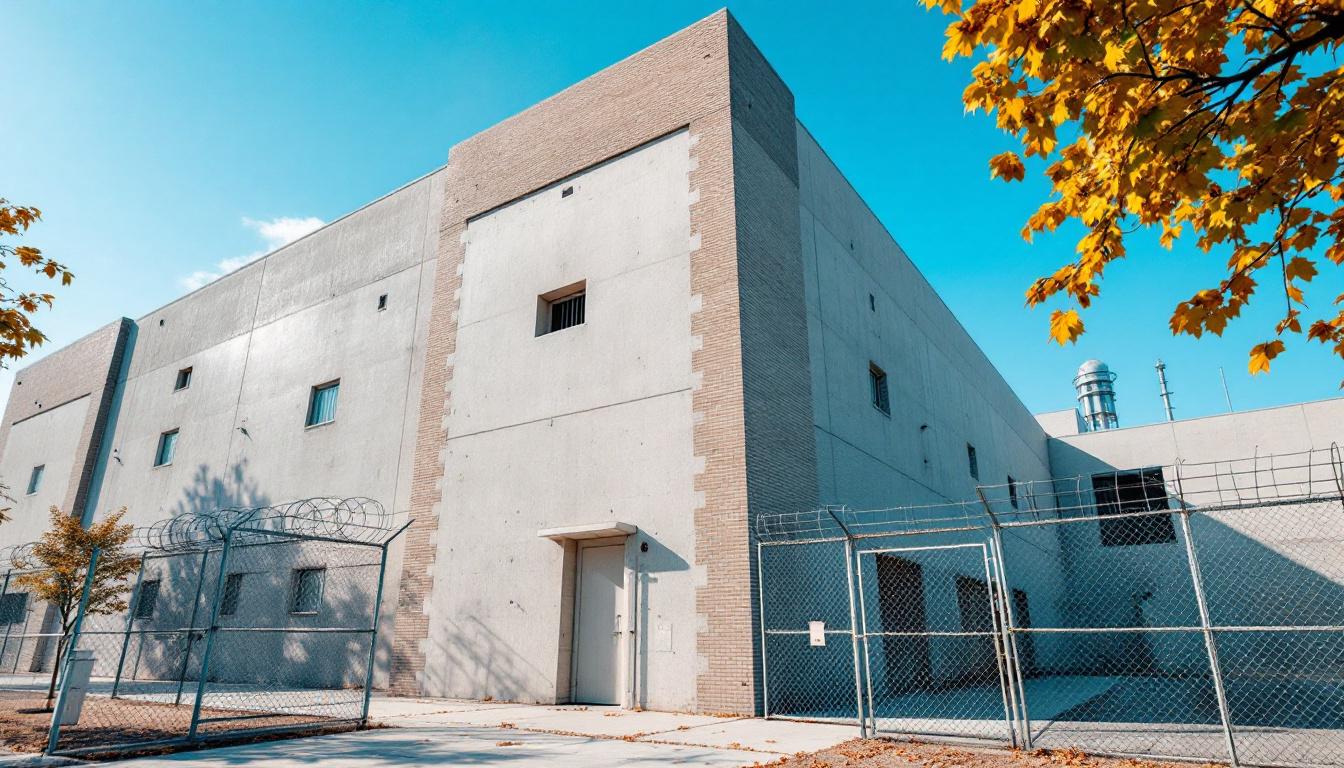
Quick Navigation
How to contact an inmate at Clay County Sheriff Office
This comprehensive guide will walk you through how to connect with an inmate at Clay County Sheriff Office. Follow the steps below to find an inmate and send letters and photos:
- Search for the inmate using our search tool below
- Create your account or log in to Penmate
- Write your message (up to 6,000 characters)
- Send instantly - inmates receive printed copies daily
Find an Inmate
Search for an inmate to start communicating today
Tip: You can search by first name, last name, or inmate ID number
To contact a person at Clay County Sheriff Office start by searching for the person on the official facility website. Perform a search by following these steps:
- Step 1: Enter their first name and last name into the search form and click "Search"
- Step 2: Locate their inmate record
- Step 3: Write down their Inmate ID and any housing information provided
Important! Be sure to enter the person's full name. Nicknames should not be used.
How to Send Messages to Inmates

You can use your phone or computer to send emails, letters, and photos to an inmate. Messages are sent electronically to inmate tablets or kiosks at the facility. If you would like to send a message, start by searching for an inmate at Clay County Sheriff Office.
Sending Photos and Postcards

A great way to send love and support to a loved one at Clay County Sheriff Office is to send photos and postcards. It only takes a few minutes to send photos from your phone and it makes a huge difference. You can also mail postcards with words of support and inspiration, or design your own postcard for special moments like birthdays and holidays.
Important! Be sure not to send any explicit photos or they may not be approved by the facility. You can also use a photo printing app like Penmate to make sure your photos are printed at the correct size (4x6 or 3x5) and are mailed according to the rules and regulations of Clay County Sheriff Office.
Frequently asked questions about Clay County Sheriff Office
-
How long does it take to deliver a message?
If you're sending an email message your letter is usually delivered within 24-48 hours. For messages sent via mail you should expect delivery within 3-7 days. All messages will need be approved by Clay County Sheriff Office.
-
How much does it cost to send a message to Clay County Sheriff Office?
You can send a message free using your phone or mail a message via USPS for the price of a $0.60 stamp and envelope. You can also purchase credits or e-stamps from services starting at $1.99.
-
What services can I use to contact an inmate at Clay County Sheriff Office?
Penmate
You can use Penmate to send letters and photos to an inmate from your phone. It's an easy way to stay in touch during your loved one's incarceration. Use the inmate locator to find an inmate's location and contact information, then you can send messages within a few minutes.
Securus messaging
Securus may be another option for communicating with an inmate at Clay County Sheriff Office. You can create a friends and family account and purchase credits to send messages. All messages will be reviewed and must be approved by the facility.
JPay
Some county jails and state prisons may support sending messages with JPay. You must register an account with the system, find your loved one, and purchase stamps to send messages. For some locations you can also attach photos.
Smart Jail Mail
You may also check if Smart Jail Mail is available at Clay County Sheriff Office. Smart Jail Mail is operated by Smart Communications and has contracted with some state and county jails. After purchasing credits, your messages and photos are sent to the facility, printed out, and then handed out to your loved one.
-
What is the mailing address of Clay County Sheriff Office?
Mailing address:
Clay County Sheriff Office
41771 AL-77
Ashland, AL 36251
Phone: (256) 354-7713 -
What are the visiting hours at Clay County Sheriff Office?
Visiting hours at Clay County Sheriff Office vary by housing unit and security level. Generally, visits are scheduled on weekends and holidays, with some facilities offering weekday visits. Contact the facility directly at (256) 354-7713 or check their website for the current visiting schedule. Visits typically last 30-60 minutes and must be scheduled in advance.
-
What items are prohibited when sending mail to Clay County Sheriff Office?
Prohibited items typically include: cash, personal checks, stamps, stickers, glitter, glue, tape, staples, paperclips, polaroid photos, musical or blank greeting cards, hardcover books, magazines with staples, and any items containing metal or electronics. Only send letters on plain white paper with blue or black ink. Photos must be printed on regular photo paper (no Polaroids). Always check with Clay County Sheriff Office for their specific mail policies.
-
How do I send money to an inmate at Clay County Sheriff Office?
You can send money to an inmate at Clay County Sheriff Office through several methods: 1) Online using JPay, Access Corrections, or the facility's approved vendor, 2) Money orders mailed directly to the facility with the inmate's name and ID number, 3) Kiosks located in the facility lobby, or 4) Over the phone using a credit or debit card. Fees vary by method, typically ranging from $2.95 to $11.95 per transaction.
-
Can I schedule a video visit with an inmate at Clay County Sheriff Office?
Many facilities now offer video visitation as an alternative to in-person visits. At Clay County Sheriff Office, video visits may be available through services like Penmate, Securus Video Connect, GTL, or ICSolutions. Video visits typically cost $10-20 for 20-30 minutes and must be scheduled in advance. You'll need a computer or smartphone with a camera and reliable internet connection. Contact the facility for their specific video visitation policies and approved vendors.
-
What identification do I need to visit an inmate at Clay County Sheriff Office?
All visitors must present valid government-issued photo identification such as a driver's license, state ID, passport, or military ID. Minors must be accompanied by a parent or legal guardian who can provide the minor's birth certificate. Some facilities require visitors to be on the inmate's approved visitation list, which may require a background check. Contact Clay County Sheriff Office for specific ID requirements and visitor approval procedures.
-
How can I find out an inmate's release date?
To find an inmate's release date at Clay County Sheriff Office, you can: 1) Use the online inmate search tool if available, 2) Call the facility's records department, 3) Contact the inmate's case manager or counselor, or 4) Have the inmate provide this information during a call or visit. For privacy reasons, some facilities only release this information to immediate family members.
Facility Overview
Official Website
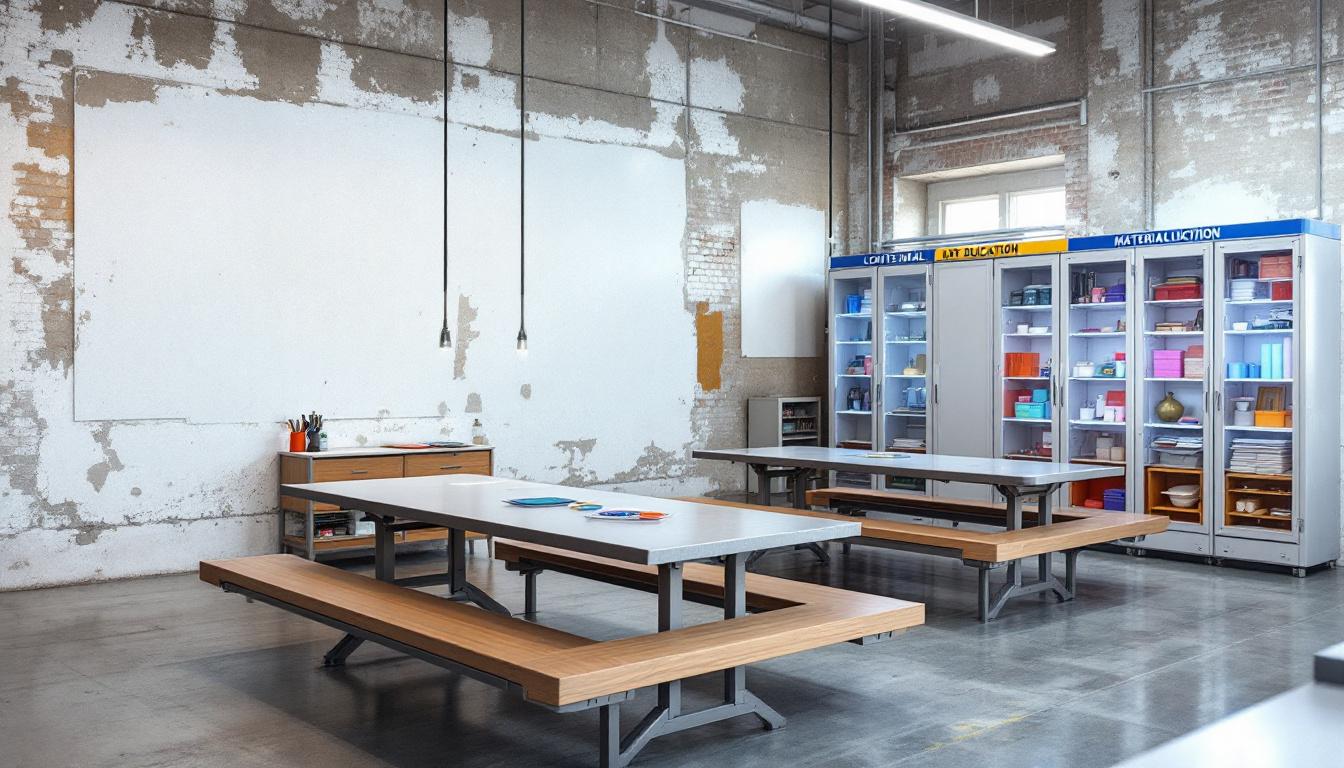
About Clay County Sheriff Office
Detention centers serve as crucial intake and holding facilities within the broader correctional framework, processing individuals awaiting trial or serving shorter sentences while maintaining essential connections to their home communities. The Clay County Detention Center, AL operates within this vital capacity in Ashland, positioned strategically to serve the judicial needs of Clay County residents while functioning as an integral component of Alabama’s regional corrections network.
Located in Ashland, this AL correctional facility typically handles pre-trial detainees and sentenced individuals serving terms generally under one year, maintaining the delicate balance between secure custody and community accessibility that characterizes county-level detention operations. The facility’s geographic positioning in east-central Alabama allows it to serve not dedicated Clay County’s immediate judicial requirements but also to coordinate with surrounding jurisdictions when regional bed space management becomes necessary. Administrative operations generally focus on efficient case processing, ensuring timely court appearances, and facilitating attorney consultations that keep the wheels of local justice moving smoothly.
The population services at this detention center typically encompass basic medical care, educational opportunities when feasible, and substance abuse programming that addresses underlying issues contributing to criminal behavior. Like many county facilities throughout the South, the center may offer work release programs for eligible inmates, allowing continued employment and family support during incarceration periods. Religious services and visitation programs generally maintain family bonds crucial for successful community reintegration, while coordination with local social services agencies often provides pathways for addressing housing, employment, and treatment needs upon release.
Programs & Services
Through a comprehensive framework of rehabilitative initiatives, Clay County Detention Center emphasizes personal growth and community reintegration as fundamental components of its correctional approach. The facility’s programs are designed to address the diverse needs of the population through structured interventions that foster skill development, personal reflection, and preparation for successful community reentry. This multifaceted approach recognizes that meaningful change occurs when individuals are provided with opportunities to develop both practical capabilities and personal insights that support long-term stability.
Educational programs form the cornerstone of the facility’s rehabilitative efforts, typically offering basic literacy instruction, GED preparation, and civic education components that help participants understand their roles and responsibilities within the broader community. These academic initiatives may supply foundational knowledge while simultaneously building critical thinking skills essential for navigating complex social and professional environments. The educational framework often includes structured learning environments where the population can develop study habits, time management skills, and collaborative problem-solving abilities that prove invaluable during the reintegration process.
Additionally, the facility’s support services encompass work release opportunities that allow eligible participants to maintain employment connections while serving their sentences, thereby preserving family financial stability and professional relationships. Faith-based programs typically provide spiritual guidance and moral reflection opportunities, while arts and crafts initiatives offer creative outlets that promote emotional expression and stress management. These diverse programming options work synergistically to address the psychological, social, and practical challenges that the population may encounter, creating a supportive environment where individuals can develop the tools necessary for successful community reintegration and reduced recidivism.
Daily Life & Visitation
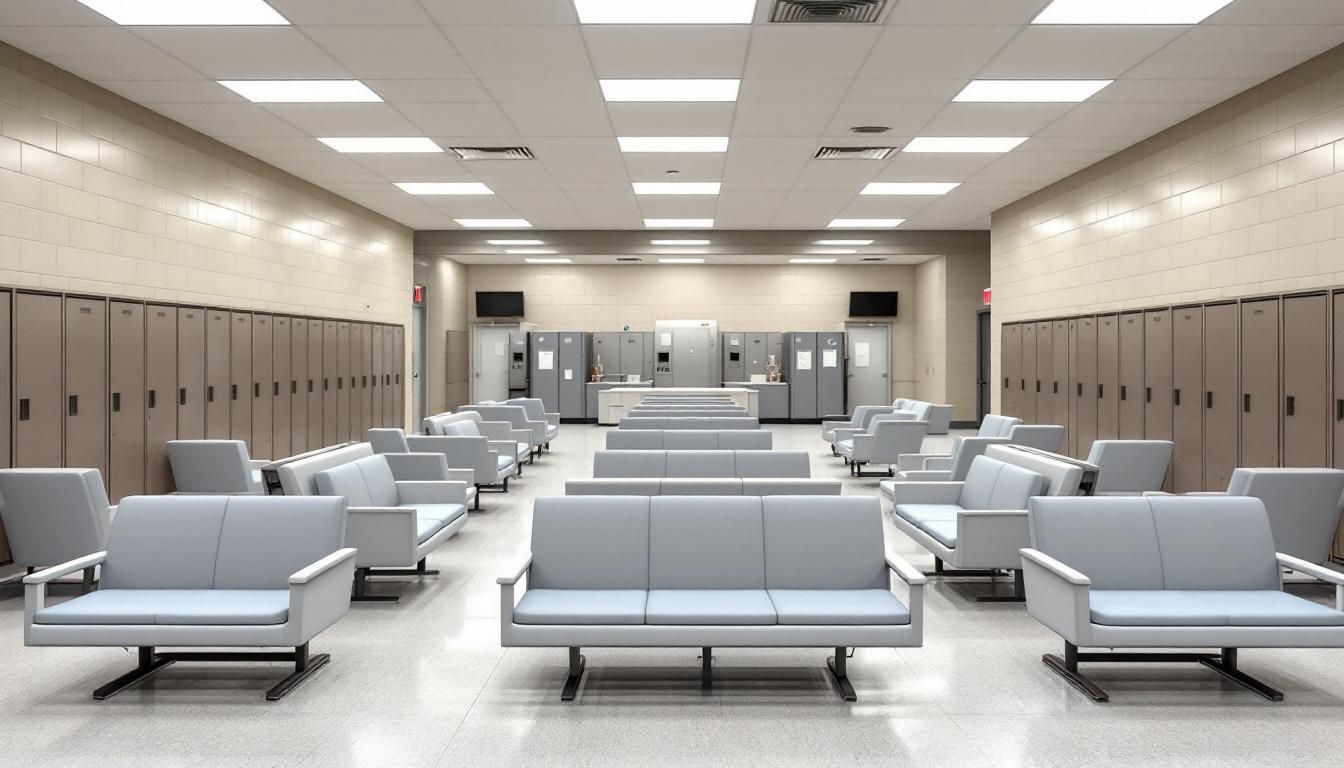
Systematic coordination between housing units and administrative staff now shapes every aspect of the residential experience at Clay County Detention Center, where carefully structured schedules provide predictable routines that help the population navigate their daily environment. The facility regularly operates on a framework that balances security requirements with basic needs, typically beginning each day with standardized wake-up procedures followed by meal service and housing unit management. Count times occur at regular intervals throughout the day, while movement between different areas of the facility generally follows predetermined schedules that accommodate various programming and operational needs.
Additionally, the population typically resides in housing units that may include dormitory-style arrangements or individual cells, depending on classification levels and available space within the facility. Living accommodations usually supply basic necessities including bedding, personal hygiene items, and limited storage for approved personal property, while commissary services often provide opportunities for residents to purchase additional items when funds are available. Meals are generally served in designated dining areas or within housing units, following nutritionally planned menus that meet standard dietary requirements, and the facility typically accommodates special dietary needs when medically necessary.
While recreational opportunities may include access to television viewing areas, library materials, and outdoor exercise periods when weather and security conditions permit, structured programming often supplies educational classes, substance abuse counseling, and religious services that help organize weekly schedules. Visitation arrangements usually allow family members and approved visitors to maintain contact through scheduled visits, while telephone access and mail correspondence typically provide additional communication options for the population. Work assignments within the facility may include kitchen duties, laundry services, and general maintenance tasks that not dedicated supply structure to daily routines but also provide opportunities for residents to contribute to facility operations while developing work skills.
Ready to Connect?
Start communicating with your loved one today
Search for an Inmate

